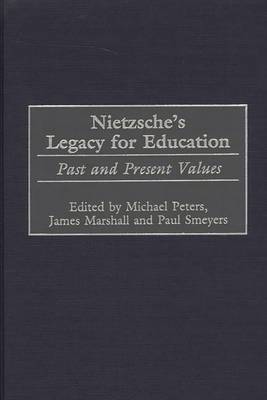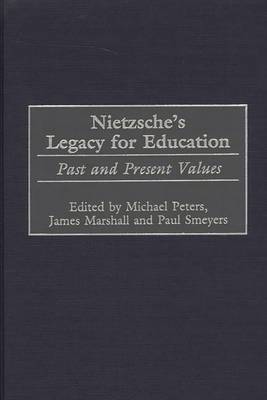
- Retrait gratuit dans votre magasin Club
- 7.000.000 titres dans notre catalogue
- Payer en toute sécurité
- Toujours un magasin près de chez vous
- Retrait gratuit dans votre magasin Club
- 7.000.0000 titres dans notre catalogue
- Payer en toute sécurité
- Toujours un magasin près de chez vous
Nietzsche's Legacy for Education
Past and Present Values
James Marshall, Michael Peters, Paul SmeyersDescription
Despite being one of the greatest educators of the 19th century (perhaps of the modern period) and one of the greatest moral philosophers of all time, Nietzsche's educational thought and works, with some notable exceptions, have been ignored, or remain hidden and obscured. This was true of his philosophy as a whole and its recent reception, first by French poststructuralist thinkers during the 1960s and 1970s, and later by English-speaking philosophers in the 1980s. The controversy surrounding Nietzsche involves not only his style (his way of doing philosophy) and the radical nature of his inquiries, but also the history of Nietzscheanism, the politicization of the Nietzsche archive, and his appropriation by the Nazis.
This international collection is unique in that it draws upon these recent developments in the interpretation of thought and the question of defining value in the era of postmodernity. The essays address a range of topics, including the history of the reception of Nietzsche's work, Nietzsche's early educational writings, genealogy as method, ethics and difference, democracy, Nietzsche's notion of self and its importance for education, the arts, the limits of academic life, Nietzsche's critique of liberal education, Irigaray's Nietzsche, and Nietzsche's critique of modernity and the question of nihilism.Spécifications
Parties prenantes
- Auteur(s) :
- Editeur:
Contenu
- Nombre de pages :
- 264
- Langue:
- Anglais
- Collection :
Caractéristiques
- EAN:
- 9780897896566
- Date de parution :
- 30-10-00
- Format:
- Livre relié
- Format numérique:
- Genaaid
- Dimensions :
- 161 mm x 242 mm
- Poids :
- 589 g

Les avis
Nous publions uniquement les avis qui respectent les conditions requises. Consultez nos conditions pour les avis.






